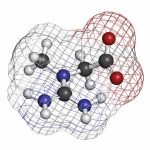New Mechanism for Beta Cell Dysfunction Discovered in Type 2 Diabetes
A team of researchers from the Joslin Diabetes Center have uncovered a key biological pathway preventing pancreatic beta islet cells from dividing successfully in type 2 diabetes. The beta islet cells, located in the islets of Langerhans within the pancreas, are responsible for secreting insulin in an endocrine-like fashion, and typically what is targeted by the immune system in type 1 diabetes. In type 2 diabetes, the beta islet cells become dysfunctional from chronic exposure to a nutrient rich environment; losing their ability to store insulin properly, and becoming desensitized to glucose. Cell death and loss of cell integrity also occur during type 2 diabetes. Many factors coalesce to cause beta cell dysfunction in type 2 diabetes, including oxidative damage at the cellular level, inflammation, amyloid plaque accumulation, ER stress, and certain genetic changes.1
Genetic Changes of the Pancreatic Beta Islet Cells
The genetic changes of the pancreatic beta islet cells during the M-phase of mitotic division – when the chromosomes are separated from one another – are what the team of researchers, led by Rohit Kulkarni, M.D., Ph.D. focuses on.2 They show that centromere protein A (CENP-A) – the centromere-specifying histone, which allows for proper attachment of mitotic spindles to corresponding chromosomes and segregation during M-phase3 – becomes deficient in type 2 diabetes. polo-like kinase 1 (Plk1) – a centromere-localized regulator required to initiate CENP-A deposition3 – is also blunted in type 2 diabetes. The CENP-A/PLK1 expression is insulin-stimulated, and becomes desensitized in diabetes, leading to maladaptive beta cell proliferation – less beta cells are being made.
Shake and Wake the Cell Cycle
This is novel research in that most research on the proliferation of beta islet cells has dealt with the G0 and G1 phases – the dormant cells “waking up” and beginning to divide. This has made sense since, as Kulkarni explains, “Most adult mammalian beta cells are in a quiescent phase, and so if you want to push them into the cell cycle, you need to shake them out of their sleep.” He goes on to explain, “many of the beta cells that begin the cell cycle don’t complete it because the regulatory signals aren’t appropriate.”
Sources:
- Halban PA, Polonsky KS, Bowden DW, et al. β-cell failure in type 2 diabetes: postulated mechanisms and prospects for prevention and treatment. Diabetes Care. 2014;37(6):1751-8.
- Shirakawa J, Fernandez M, Takatani T, et al. Insulin Signaling Regulates the FoxM1/PLK1/CENP-A Pathway to Promote Adaptive Pancreatic β Cell Proliferation. Cell Metab. 2017.
- Mckinley KL, Cheeseman IM. Polo-like kinase 1 licenses CENP-A deposition at centromeres. Cell. 2014;158(2):397-411.
 Node Smith, associate editor for NDNR, is a fifth year naturopathic medical student at NUNM, where he has been instrumental in maintaining a firm connection to the philosophy and heritage of naturopathic medicine amongst the next generation of docs. He helped found the first multi-generational experiential retreat, which brings elders, alumni, and students together for a weekend campout where naturopathic medicine and medical philosophy are experienced in nature. Three years ago he helped found the non-profit, Association for Naturopathic ReVitalization (ANR), for which he serves as the board chairman. ANR has a mission to inspire health practitioners to embody the naturopathic principles through experiential education. Node also has a firm belief that the next era of naturopathic medicine will see a resurgence of in-patient facilities which use fasting, earthing, hydrotherapy and homeopathy to bring people back from chronic diseases of modern living; he is involved in numerous conversations and projects to bring about this vision.
Node Smith, associate editor for NDNR, is a fifth year naturopathic medical student at NUNM, where he has been instrumental in maintaining a firm connection to the philosophy and heritage of naturopathic medicine amongst the next generation of docs. He helped found the first multi-generational experiential retreat, which brings elders, alumni, and students together for a weekend campout where naturopathic medicine and medical philosophy are experienced in nature. Three years ago he helped found the non-profit, Association for Naturopathic ReVitalization (ANR), for which he serves as the board chairman. ANR has a mission to inspire health practitioners to embody the naturopathic principles through experiential education. Node also has a firm belief that the next era of naturopathic medicine will see a resurgence of in-patient facilities which use fasting, earthing, hydrotherapy and homeopathy to bring people back from chronic diseases of modern living; he is involved in numerous conversations and projects to bring about this vision.









